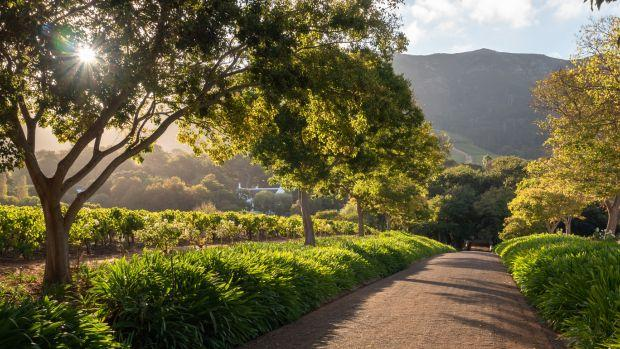News
Western Cape Wine Makers Eye Canada as Trump’s Tariffs Spark US Boycotts

When Canadians started pulling Napa Valley wines off their shelves in protest against US tariffs, the Western Cape smelled opportunity. With exports to the US already tumbling, South African producers are now turning their eyes northhoping to fill the gap with Cape wines.
Boycotts and a global backlash
US President Donald Trump’s heavy-handed tariff regime has rattled trade relations worldwide. For Canadians, Trump’s annexation threats and aggressive tariff policies triggered a surge of nationalism that translated directly into consumer behavior.
A Kantar survey earlier this year revealed that Canadians were far more likely than Brits or the French to boycott American goods, services, and even travel. That sentiment soon found its way into liquor stores: in March, Ontario premier Doug Ford ordered all US alcohol off the shelves of the province’s Liquor Control Board outlets.
It was a small but symbolic move that snowballed into a broader trend, one that hasn’t gone unnoticed in South Africa.
“Every crisis presents an opportunity”
Western Cape MEC for Agriculture, Ivan Meyer, said the Canadian boycott immediately sparked an idea. Speaking after a Nedbank round table at the Cape Nampo agricultural fair in Bredasdorp, he recalled his visit to California’s Napa Valley.
“When I saw Canadians removing Napa Valley wines, I thought: that’s the space we need to occupy,” Meyer said. “Every crisis presents an opportunity.”
His thinking is simple, if Canadian consumers are rejecting US wines, there’s room on the shelves for South African bottles.
That’s why the Western Cape will send a trade delegation to Canada in October, focused on wine and table grapes. Meyer’s recent dinner with Canadian Finance Minister François-Philippe Champagne reinforced the idea. “The first words he said to me were, ‘Mr Minister, Canada is open for business’.”
Why this matters for South Africa
The timing could not be more urgent. South Africa’s exports to the US dropped 14.7% year-on-year in the first half of 2025, and a new 30% tariff on SA imports into the US came into effect on August 7. The second half of the year may bring even steeper declines.
Losing ground in America, whose economy is ten times bigger than Canada’s, is a blow. But Canadian shelves now represent a rare chance to recover lost revenue.
Not all rosy in the vineyard
Still, agricultural leaders warn that new markets don’t open overnight. AgriSA CEO Johann Kotzé told the Nedbank panel it can take eight to ten years to properly establish South African produce in a foreign market.
That said, South Africa’s biggest ace is its counter-seasonal advantage. Citrus, avocados, and grapes arrive on Canadian shelves when northern hemisphere farmers aren’t producing, giving SA growers a competitive edge.
Kotzé cautioned against treating the US as a “no-go zone” despite Trump’s unpredictable trade tactics. The Supreme Court is expected to rule on the legality of the tariffs later this year, and if struck down, the doors to the US market could reopen quickly.
Playing the long game
For now, Canada offers a lifeline. It may not replace the scale of American trade, but it could soften the blow and help South Africa’s wine and fruit producers diversify their export footprint.
And in the world of global trade, where politics, tariffs, and consumer boycotts shift like the Cape windsdiversification may be the best survival strategy.
Do you think South Africa should lean more on Canadian partnerships, or hold out in hopes of the US tariffs being struck down?
{Source: Daily Maverick}
Follow Joburg ETC on Facebook, Twitter , TikTok and Instagram
For more News in Johannesburg, visit joburgetc.com





















